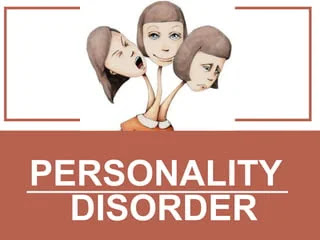Understanding Personality Disorders: A Deep Dive
Introduction
In the complex world of human psychology, personality disorders stand as intriguing and often misunderstood conditions. These disorders not only affect the individuals who suffer from them but also impact the lives of those around them. In this comprehensive article, we will delve into the intricacies of personality disorders, shedding light on what they are, their various types, possible causes, and most importantly, how they can be managed and treated.
Defining Personality Disorders
What Are Personality Disorders?
Personality disorders are a group of mental health conditions characterized by enduring patterns of behavior, cognition, and inner experience that deviate markedly from the expectations of the individual's culture. These patterns typically lead to significant distress or impairment in social, occupational, or other important areas of functioning.
Common Types of Personality Disorders
There are several recognized types of personality disorders, each with its unique characteristics. Some of the most prevalent ones include:
1. Borderline Personality Disorder (BPD)
- Intense mood swings
- Impulsivity
- Fear of abandonment
2. Narcissistic Personality Disorder (NPD)
- Grandiosity
- Lack of empathy
- Need for excessive admiration
3. Antisocial Personality Disorder (ASPD)
- Disregard for the rights of others
- Persistent antisocial behavior
- Lack of remorse
4. Obsessive-Compulsive Personality Disorder (OCPD)
- Perfectionism
- Preoccupation with rules and order
- Inflexibility
The Causes of Personality Disorders
Understanding the causes of personality disorders is a complex matter. It is believed that a combination of genetic, environmental, and neurological factors plays a role in their development. Additionally, adverse childhood experiences, such as trauma or neglect, can contribute significantly to the onset of these disorders.
Diagnosing Personality Disorders
Diagnosing personality disorders can be challenging due to the intricate nature of human personality. Mental health professionals use standardized assessments and criteria outlined in the Diagnostic and Statistical Manual of Mental Disorders (DSM-5) to make accurate diagnoses.
Living with a Personality Disorder
Coping Mechanisms
For individuals living with personality disorders, learning effective coping mechanisms is essential. Therapy, such as dialectical behavior therapy (DBT) and cognitive-behavioral therapy (CBT), can help individuals manage their symptoms and improve their quality of life.
The Importance of Support
Support from friends and family members is crucial for those dealing with personality disorders. Building a strong support network can provide emotional stability and reduce feelings of isolation.
Conclusion
In conclusion, personality disorders are complex conditions that require careful consideration and support. By understanding their causes, recognizing the symptoms, and seeking appropriate treatment, individuals can lead fulfilling lives despite these challenges.
FAQs
1. Can personality disorders be cured?
No, personality disorders cannot be cured, but their symptoms can be managed with therapy and support.
2. Are personality disorders common?
Yes, personality disorders are relatively common, affecting approximately 9-13% of the global population.
3. Is it possible to have more than one personality disorder?
Yes, it is possible for an individual to have more than one personality disorder simultaneously, known as comorbidity.
4. Can personality disorders develop in adulthood?
While some personality disorders may become more evident in adulthood, their roots are often traced back to childhood or adolescence.
5. How can I help a loved one with a personality disorder?
Supporting a loved one with a personality disorder involves being patient, and empathetic, and encouraging them to seek professional help.





Comments
Post a Comment